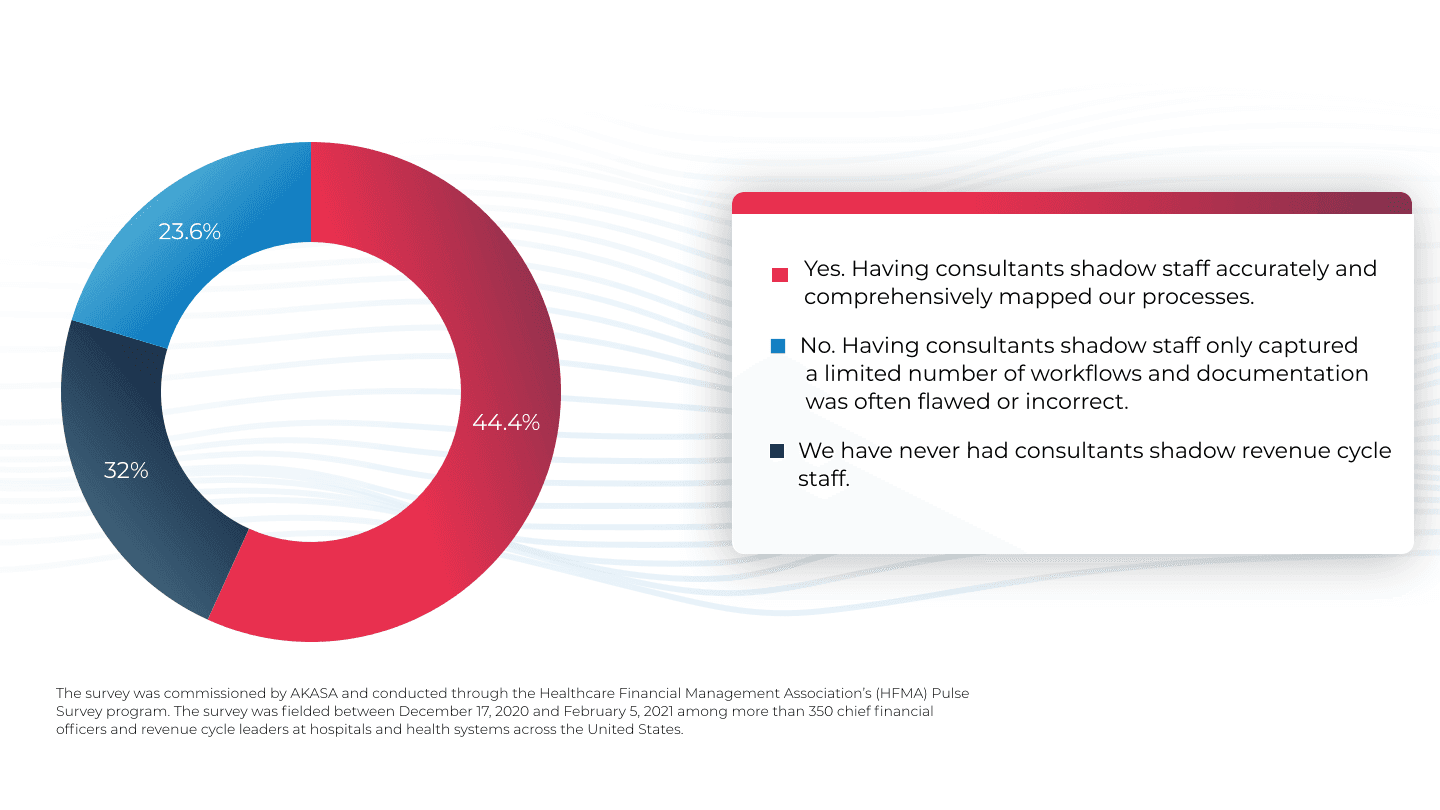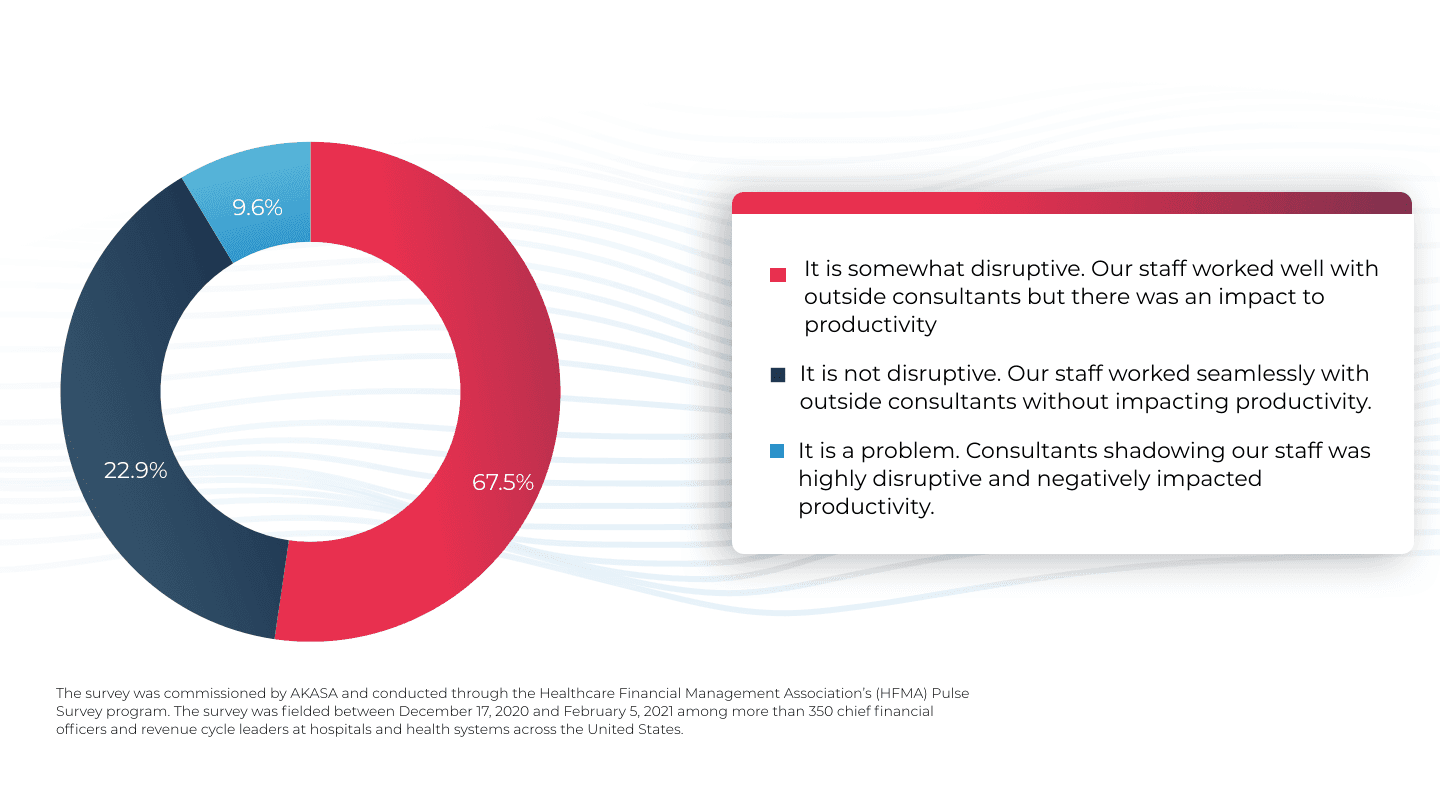AKASA™, the only Unified Automation™ company for healthcare revenue cycle management, released results of a national survey designed to assess deployment of technology solutions in revenue cycle operations at hospitals and health systems across the U.S. According to the survey, 77 percent of health systems that have had staff shadowed to document workflows and processes in revenue cycle operations found it disruptive, with negative impacts on productivity.
The survey was commissioned by AKASA and conducted through the Healthcare Financial Management Association’s (HFMA) Pulse Survey program. The survey was fielded between December 17, 2020 and February 5, 2021 among more than 350 chief financial officers and revenue cycle leaders at hospitals and health systems across the United States.
Integrating automation or other technology tools often requires consultants to shadow employees in order to document workflows and processes. Shadowing is also commonly done as part of broader business-process improvement efforts. Almost 70 percent of health systems surveyed have had their revenue cycle staff shadowed for projects. More than 40 percent felt the process accurately and comprehensively mapped their processes, while 23.6 percent found that staff shadowing only captured a limited number of workflows and the resulting documentation was often flawed or incorrect.
“The shift to remote work for many teams due to the pandemic made staff shadowing particularly challenging,” said Varun Ganapathi, PhD, co-founder and chief technology officer of AKASA. “The ability to deploy technology solutions entirely remotely, without the need to ever step foot on premises is no longer a novel approach but a best practice. At AKASA, we intentionally designed our Unified Automation™ solution for a rapid and fully remote deployment process. We use our proprietary software to capture a multi-modal, 360 degree view of workflows. This enables us to train our machine learning models in a manner that mirrors staff with minimal disruption to their daily work.”
Survey respondents were asked, “Has staff shadowing been an accurate and comprehensive way to document and map your revenue cycle operations?”

Organizations that have used shadowing in their revenue cycle operations to document workflows and processes were then asked, “How disruptive is staff shadowing to your staff?”

About AKASA
At AKASA, we believe every dollar spent on healthcare matters because healthcare matters to everyone. The only Unified Automation™ company for healthcare, AKASA uses the same machine learning approaches that made driverless cars possible to provide health systems with a single solution for automating revenue cycle operations. AKASA’s unique expert-in-the-loop approach, Unified Automation, combines modern machine-learning with human judgment and subject matter expertise to provide robust and resilient automation. Unified Automation™ adapts to the highly dynamic nature of revenue cycle operations and has been purpose-built for healthcare. AKASA enables health systems to decrease their cost to collect so they can invest more in patient care and be better stewards of the healthcare dollar. AKASA is based in the heart of Silicon Valley. Learn more at www.AKASA.com.



